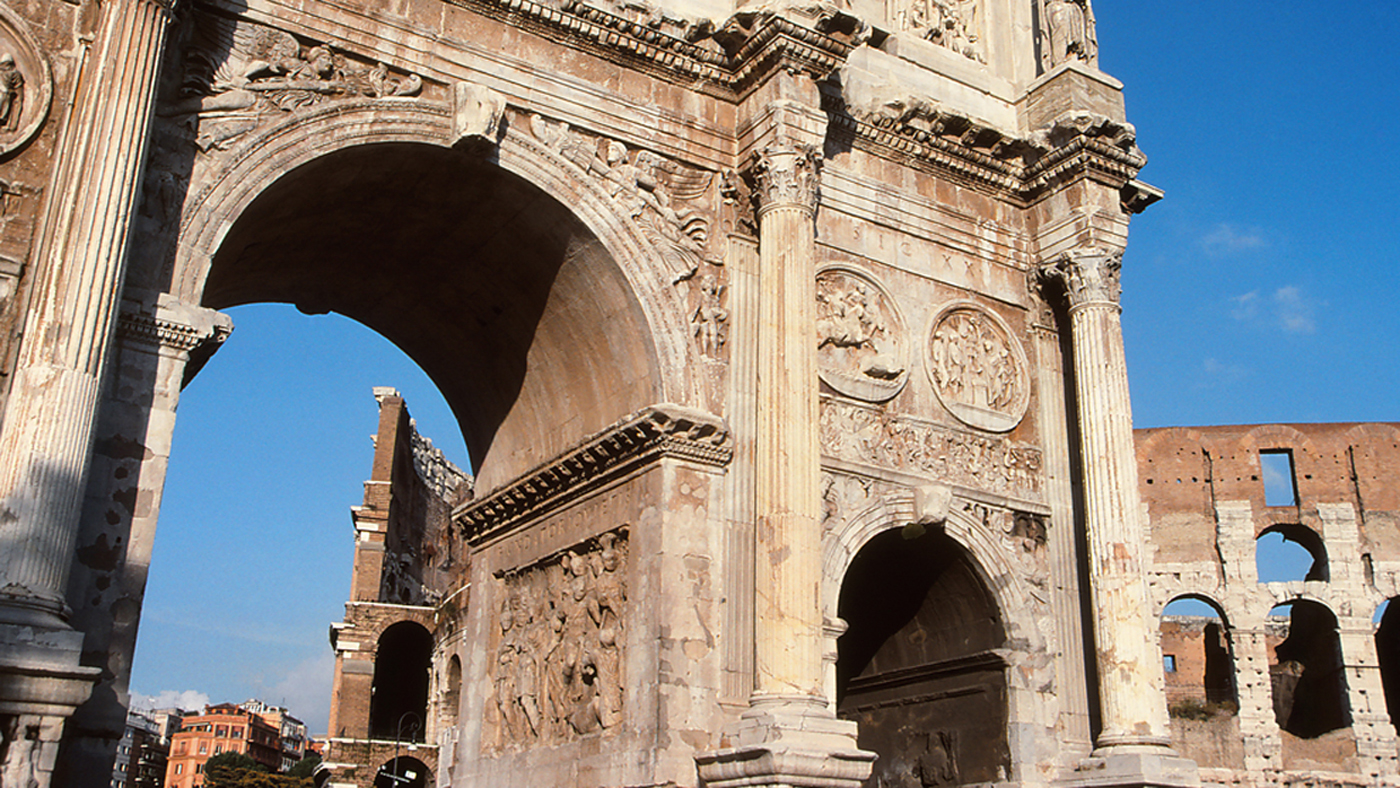It came out of a two-man summit meeting in the northern Italian city of Milan in January 313. The two men were the Roman emperors—Constantine ruling the West and Licinius the East. They met “under happy auspices,” as their joint communiqué put it. After years of power struggles for the imperial purple, the Roman world enjoyed a degree of peace. And after the failure of the Great Persecution (initiated by the emperors Diocletian and Galerius in 303–304), the Christian church had begun to recover its stability. Constantine and Licinius turned their minds to matters affecting the general welfare of the Empire.
They determined first of all to attend to “the reverence paid to the Divinity.” This required a guarantee of full religious freedom to the Christians, setting them on a par with those who followed other religions. The so-called Edict of Milan provided for this. It marks the Roman Empire’s final abandonment of the policies of persecution of Christians. The age of the martyrs was at an end. The transition to the era of the “Christian Empire” had begun.
Provisions of the “Edict”
The conference at Milan undoubtedly resulted in a concordat. But its terms are known to us only from a rescript issued six months later by Licinius.
(This rescript was sent from his capital in Nicomedia—now Izmit in Turkey, just east of the Bosporus—to the governor of the nearby province of Bithynia. The Christian writer Lactantius has preserved its original Latin, while the church historian Eusebius gives it in Greek. )
Here are the rescript’s main provisions:
“Our purpose is to grant both to the Christians and to all others full authority to follow whatever worship each person has desired, whereby whatsoever Divinity dwells in heaven may be benevolent and propitious to us, and to all who are placed under our authority. Therefore we thought it salutary and most proper to establish our purpose that no person whatever should be refused complete toleration, who has given up his mind either to the cult of the Christians or to the religion which he personally feels best suited to himself. It is our pleasure to abolish all conditions whatever which were embodied in former orders directed to your office about the Christians, that every one of those who have a common wish to follow the religion of the Christians may from this moment freely and unconditionally proceed to observe the same without any annoyance or disquiet.”
The rescript goes out of its way to ensure evenhanded treatment for all: “no diminution must be made from the honor of any religion. ” But the strongly pro-Christian flavor is tasted in the instructions to restore to the Christians all property that had been appropriated during the persecution. This applied to property belonging to individual Christians as well as to churches—and without regard for the present owners, who could apply to the state for compensation.
In implementing these rulings the governor was to give the Christians his “most effective intervention,” making sure the terms were published to all.
These actions, Constantine and Licinius concluded, would ensure that “the Divine favor toward us, which we have already experienced in so many affairs, shall continue for all time to give us prosperity and success, together with happiness for the state.”
Significance of the “Edict”
In reality, the subjects of Constantine in the Western Empire already enjoyed the toleration and property rights spelled out in this rescript. Nevertheless, the “Edict’s” significance stands unchallenged (even though we must recognize the inaccuracy of its traditional title, since it was not an edict).
Only a few months earlier Constantine had become the first Roman emperor to throw in his lot with the Christians. Although the Milan summit decreed only strict parity for Christians alongside other religionists, hindsight reads between the lines and discerns the hint of things to come. Before the end of the fourth century, orthodox Christianity had become the sole official religion of the Roman Empire.
For Christianity, the changes were momentous. To this day state churches perpetuate the alignment between Christianity and the Empire worked out in the fourth century. Meanwhile, Christians in independent, “free” churches have long regarded the Constantinian revolution as little short of the fall of Christianity, almost as calamitous as the fall of Adam and Eve.
One thing is clear: The unqualified toleration for all decreed at Milan did not last long, nor has it often prevailed in later centuries. The rescript’s noble sentiments surely warrant our attention today for that reason alone.
David F. Wright is dean of the faculty of divinity at the University of Edinburgh and a member of the advisory board of Christian History.











